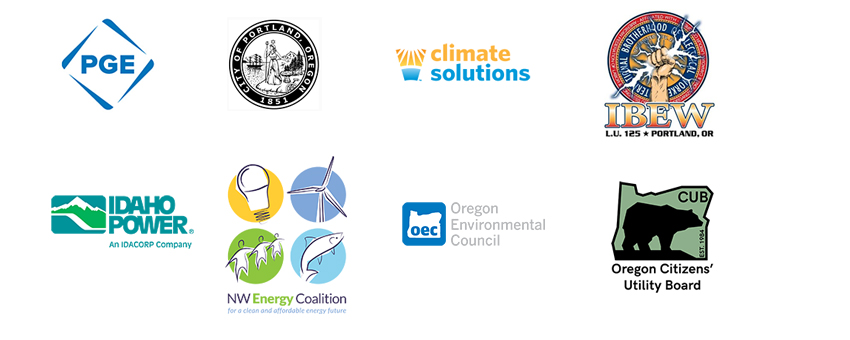New law will boost zero-emission vehicles in Oregon, reducing state’s impact on climate change
June 19, 2019
Portland, Ore. — Oregon took a major step forward toward reducing greenhouse gas emissions from the transportation sector thanks to Senate Bill 1044, passed in the Legislature Tuesday and headed to Gov. Kate Brown for her signature.
“With the passage of Senate Bill 1044, Oregon is helping lead the nation on how to transition to a cleaner, modern transportation system,” Gov. Brown said. “When zero-emission vehicles are widely used and charging stations are easily accessible to all, we can support economic development and the environment at the same time.”
An increasing share of Oregon’s greenhouse gas emissions (nearly 40%) are from the transportation sector, with a majority coming from cars and trucks. SB 1044 will help drive down these emissions by setting goals, linked to Oregon’s greenhouse gas reduction goals, for the adoption of zero-emission vehicles (ZEVs) in the state.
“Oregon has important and ambitious climate goals, and the only way the transportation sector will reach them is if ZEV adoption happens at a much faster rate,” said Sen. Lee Beyer (D-Springfield), one of the bill’s chief sponsors. “Getting there requires clear goals, metrics and policy choices.”
ZEVs have no tailpipe emissions and run on cleaner fuel sources like electricity or renewable hydrogen. If the bill’s goals are met, ZEVs would become the dominant cars on the road. One measure of success is that 90% of all new vehicles sold in Oregon and 50% of all registered vehicles in Oregon would be ZEVs by 2035.
The bill also requires the Oregon Department of Energy to monitor ZEV adoption. If the state is off track, ODOE must recommend strategies to the Legislature to spur ZEV adoption. These could include policies to develop more infrastructure (such as electric vehicle charging and hydrogen fueling stations) and increase public awareness about ZEVs and their benefits.
SB 1044 also gives schools the option to use an existing funding source, the portion of the public purpose charge dedicated to schools, to purchase electric buses and charging stations. (This charge is paid by PGE and Pacific Power customers to fund energy efficiency.) In addition, it requires that all light-duty vehicles owned or leased by the state of Oregon be ZEVs by 2029.
“Zero-emission vehicles and buses are not only better for the environment, but the fuel to power them is less expensive and often produced right here in Oregon, by Oregon workers,” said Rep. Jeff Reardon (D-East Portland/Happy Valley), the other chief sponsor of the bill. “This bill supports ZEV adoption and supports our economy, better air quality and a cleaner environment.”
Portland General Electric, City of Portland, Climate Solutions, Idaho Power, International Brotherhood of Electrical Workers, Northwest Energy Coalition, Oregon Citizens’ Utility Board, Oregon Environmental Council and Pacific Power worked with Sen. Beyer and Rep. Reardon to promote the bill, supported by a coalition of other environmental, labor and customer advocacy groups, and city mayors.
Maria Pope, President and CEO of Portland General Electric, said the company helped develop the bill as part of its goal to support economy-wide decarbonization. “We applaud the work of the Legislature in taking a holistic view of creating a cleaner transportation system, leveraging the reliable, affordable and increasingly clean electricity system that PGE employees are working hard to achieve,” she said.
ZEVs offer several benefits for consumers. They are a more economical mode of transportation, with state and federal tax incentives making them cost the same or less than comparable combustion-engine vehicles. Oregonians who own ZEVs also save about $860 a year in fuel costs and even more in reduced maintenance. Most ZEVs built today can drive between 150 and 240 miles on a single charge, enough range to meet most people’s driving needs. They also are supported by hundreds of fast-charging stations throughout the state.

For more information contact:
Steve Corson, PGE, 503-464-8444, Steven.Corson@pgn.com
Kimberly Larsen, Climate Solutions, 503-881-7991, kimberly@climatesolutions.org
Sean O’Leary, Northwest Energy Coalition, 206-621-0094, sean@nwenergy.org
Janice Thompson, Oregon Citizens’ Utility Board, 503-227-1984 x24 janice@oregoncub.org
Tony Hernandez, Oregon Environmental Council, 713-857-5935, tonyh@oeconline.org